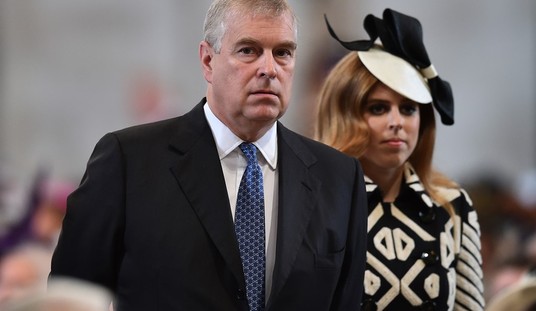Bernie Sanders wants to turn the U.S. Postal Service into a bank so it can put out loans. He told Fusion.net last week how awesome of an idea it’d be because it would fight back against those dirty, rotten payday lenders.
Yeah, I think that’s a great idea. In fact, I just spoke to a postal union this morning. I want to see our post office be reinvigorated. And one of the ways that I think we can help not only the U.S. Postal Service, but help a lot of low-income people—if you are a low-income person, it is, depending upon where you live, very difficult to find normal banking. Banks don’t want you. And what people are forced to do is go to payday lenders who charge outrageously high interest rates. You go to check-cashing places, which rip you off. And, yes, I think that the postal service, in fact, can play an important role in providing modest types of banking service to folks who need it.
He’s not the only person wanting to do this. Massachusetts Senator Elizabeth Warren proposed the exact same thing last year and it’s got the support from noted “thinkers” like Salon. Mehrsa Baradaran wrote at Slate the postal bank should happen because the U.S tried it from 1911-1967 with the USP Saving System and thinks it worked well (emphasis hers).
By 1934, postal banks had $1.2 billion in assets—about 10 percent of the entire commercial banking system—as small savers fled failing banks to the safety of a government-backed institution…Deposits also reached their peak in 1947 with almost $3.4 billion and 4 million users banking at their post offices. In part this was because in 1940, the post office introduced the world to banking by mail, which appealed to soldiers stationed abroad.
But Baradaran is only telling half the story. The truth is, things started rapidly changing after 1947 for postal banking. USPS’ own website explains why they got out of the banking business.
After World War II, goods became available to meet pent-up consumer demand, banks raised their interest rates to two percent or higher and offered the same government guarantee as the Postal Savings System, and savings bonds provided a higher rate of interest. Deposits in the Postal Savings System declined, dropping to $416 million by 1964. On April 27, 1966, the Post Office Department stopped accepting deposits to existing accounts, refused to open new accounts, and cut off interest payments as the yearly anniversary date of existing accounts came up. When the Postal Savings System ended officially on July 1, 1967, about $50 million in unclaimed deposits of more than 600,000 depositors was turned over to the Treasury Department to be held in trust indefinitely…An Act of August 13, 1971, authorized the Treasury to turn over the money on deposit to various states and jurisdictions, each sharing proportionally based on its own deposits. Some $9 million were distributed that year.
It’s no wonder why USPS IG David Williams wrote in May turning the Post Office back into a bank isn’t a good idea, even if cash might eventually come in.
However, if the Postal Service were to succeed in becoming a bank, the risks, costs, and regulatory burdens that would come with it would pose tremendous challenges. For starters, the Postal Service may have to retrofit offices, hire significant financial expertise, build internal systems on a massive branch network, raise billions of dollars in capital, and bring in a staff of compliance managers. The uncertainties and downsides make this approach less viable than other approaches, at least in the short term.
The fact is USPS isn’t making any money at all. It lost $5.5B in 2015 and lost almost $16B in 2012. Turning it into a bank probably won’t save it, despite the hopes and dreams of people like Sanders and Warren. There’s also the question as to whether the entire thing should just be shut down, even if it’s in the Constitution (although it doesn’t say Congress has to keep the Post Office operational). It’s just another example of government not wanting to relinquish power, even when the facts and numbers don’t add up.
But Sanders wants to give USPS more power under the idea it will protect people from bad actors without remembering that freedom means people can make bad choices. I don’t think it’s smart to go to to payday lenders because of the high interest rates (although Charles Lane at The Washington Post explains why those interest rates are so high) and it’s anathema for me to put up collateral for something. At the same time, individuals are the ones decided to put collateral up in exchange for cash. As for check-cashing places, one place I talked to in Dallas charges $18-19 for a $1000 check while banks charge anywhere between zero (Capital One) to $10 (M&TB Bank and PNC Bank). So for Sanders to suggest people would be ripped off, is a) disingenuous and b) shows how important education is. People can go to larger banks to get checks cashed (and a lot of them do) and not have to worry about crazy fees. They could also talk to their employers about getting paid in cash or Bitcoin. Alternatives exist, people just have to be willing to go find them. If they decide not to, that’s on them.
People have to take responsibility for their own actions. It’s not the government’s job to protect people from themselves. It’d just be nice if more politicians would be willing to admit this.








Join the conversation as a VIP Member